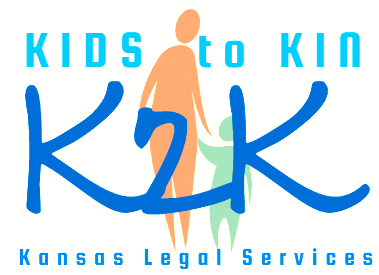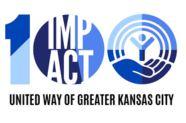Table of Contents
Kids2Kin Legal Services - Kinship Navigator for Kansas Families
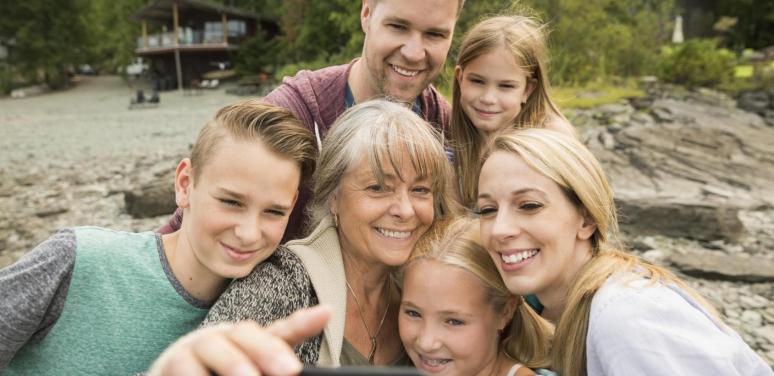
Kansas Legal Services Kids2Kin (K2K) Program is legal help for kinship families: Eliminating legal barriers around permanency for kinship families
Serving: Kinship families experiencing hardships with children 0 - 17. Services available statewide.
TABLE OF CONTENTS
Click on the topic you'd like to explore.
Key Programs in Kansas
Public Benefits
- Help with Public Benefits
- Key Public Benefits - Nutrition
- Key Public Benefits - Health Care
- Key Public Benefits: Tax Credits
Education
- Educational Enrollment
- Early Intervention, Special Education and Related Services
- Early Childhood Education
Legal
State Laws
Programs That Can Help
Local programs that provide support, resources and assistance to grandfamilies can often be found by contacting your local school, area agency on aging, community center, faith-based organization or children’s services office.
Key Programs in Kansas
Kansas Legal Services - Kids2Kin (K2K) Legal Assistance for Kinship Families
Phone: FOR REFERRALS FROM DCF ONLY, 316-290-8224
Email: kids2kin@klsinc.org
Service Area: Statewide
Description: Legal assistance for kinship families in Kansas for families of children at risk for foster care. Referrals of families must be made by the Department for Children and Families.

Kansas Children’s Service League (KCSL) – Grandparents/Kinship Groups and Activities Website: www.kcsl.org
Phone: 24-hour Parent Helpline: 1-800-CHILDREN (toll-free)
Email: bjgore@kcsl.org
Service Area: Statewide
Description: Network of support groups throughout the state, family group conferences, resource materials, assistance applying for financial and medical services, and Kinship Navigator program.
Kansas Department for Aging and Disability Services – Relatives As Caregivers
Website: www.kdads.ks.gov
Phone: 1-800-432-3535 (toll-free)
Service Area: Statewide
Description: Support and resource groups.
Kansas Elder Law Hotline – Kansas Legal Services Website: www.kansaslegalservices.org
Phone: 316-267-3975
Service Area: Statewide
Description: Legal advice (no income eligibility) over the phone from volunteer attorneys and additional legal services for eligible people over age 60.
Back to Top
Public Benefits
Federal and state public benefits programs can help with income, food, healthcare, home energy, telephone and other needs for those who are eligible. Eligibility requirements vary with each public benefit and sometimes are different from state to state. Some benefits are for the family and others are for children or older adults individually. Children are often eligible for public benefits even if their caregivers do not have guardianship. Relative caregivers may become eligible for benefits programs when their household size increases.
Applying on Your Own in Kansas
Kansas provides a portal through the Department for Children and Families that lets you apply for public benefits from Kansas. You can access the portal here: https://cssp.kees.ks.gov/apspssp/sspNonMed.portal
Other resources that give help with public benefits are listed below.
Help with Public Benefits
AARP Foundation’s Benefits QuickLink
Benefits QuickLINK, powered by BenefitsCheckUp of the National Council on Aging, offers a free and private way to complete a questionnaire to find out if relatives and/or the children they are raising qualify for certain programs that pay for food, increase income and cover home and healthcare costs. The specific programs covered by the questionnaire in the website are listed below. Once the questionnaire is completed, the website generates a list of eligible programs and contact information.
An official website of the federal government, this resource has state specific information on benefits, in addition to a screening tool to find out which programs you may be eligible to receive.

The National Eldercare Locator service helps you find your local area agency on aging and other state and local resources that can help with public benefits, local programs and other services for older adults. 1-800-677-1116 (toll-free) www.eldercare.gov
Key Public Benefits: Income
Kansas administers federal funds that provide cash assistance to families in need.
Temporary Assistance to Needy Families (TANF)
Cash assistance may be available to eligible children and their relative caregivers.
Kansas Successful Families Program
1-888-369-4777 (toll-free)
Email: baas@srskansas.org www.dcf.ks.gov/services/ees/Pages/Cash/TANF.aspx
To apply online – Go to https://www.dcf.ks.gov/services/ees/Pages/Application-for-benefits.aspx
Generations United’s Grand Resources:
A multigenerational program, Social Security provides income benefits to adults, older adults and children. In addition to Retirement and Disability benefits, Survivor’s Benefits are based on a child’s parent’s earnings and may help if a child’s parents die. Your grandchild may also qualify for benefits based on your work record. The Supplemental Security Income (SSI) program pays benefits to disabled adults and children who have limited income and resources. SSI benefits are also payable to people 65 and older without disabilities who meet the financial limits.
Online Directory - To find your local Social Security Administration office. 1-800-772-1213 (toll-free)
Back to Top
Key Public Benefits: Nutrition
Relative caregivers and their families may be eligible for assistance with groceries, meals, infant formula and nutrition education. These are some of the key nutrition benefits programs and resources.
Supplemental Nutrition Assistance Program (SNAP)
SNAP is the name for the federal Food Stamp Program. It helps low-income individuals and families buy the food they need for good health.
Kansas Food Assistance Program
Department for Children and Families, Economic and Employment Services 1-888-369-4777 (toll-free) www.dcf.ks.gov/services/ees/Pages/Food/FoodAssistance.aspx
To apply online – Go to https://cssp.kees.ks.gov/apspssp/sspNonMed.portal
Food and Nutrition Services of the U.S. Department of Agriculture (USDA)
Child Nutrition Program - The schools, early childhood education programs, child care centers, afterschool programs or other programs that children attend may offer free or reduced meals through the federal Child Nutrition Program, which provides breakfast, lunch, snacks, summer meals and milk. Contact the school, center or program to ask if they participate in any of the child nutrition programs and how to apply. Relative caregivers should inform the program that they are raising the child and whether or not they are doing so through a court order.

The Kansas Department of Education office that manages the Child Nutrition program:
Fresh Fruit and Vegetable Program
Child and Adult Care Food Program
Women, Infant and Children (WIC) - Kansas administers federal funds for supplemental foods, health care referrals, and nutrition education for low-income pregnant, breastfeeding, and non-breastfeeding postpartum women, and to infants and children up to age five who are found to be at nutritional risk.
Kansas Department of Health and Environment
- Nutrition and WIC Services
- 1000 SW Jackson Street Suite 220
- Topeka, KS 66612-1274
- United States
Special Supplemental Nutrition Program for Women, Infants, and Children (WIC)
Organizations that provide free food and sometimes other items, such as diapers, to families in need.
Online State Directory - To find local food banks. www.feedingamerica.org/foodbank-results.aspx
Back to Top
Key Public Benefits: Health Care
Relative caregivers and the children they are raising may be eligible for health insurance through Medicare and/or Medicaid and help with prescription drugs. Benefits QuickLINK can help you find these benefits.
Relative caregivers may apply for free or low-cost health and dental insurance for the children they are raising through the Children’s Health Insurance Program (CHIP), which provides health coverage to eligible children through both Medicaid and separate CHIP programs. CHIP and Medicaid are the national names, and Kansas calls it KanCare.
1- 800-792-4884 (toll-free) www.kancare.ks.gov/
To apply online – Go to https://www.dcfapp.kees.ks.gov/apspssp/ssp.portal
Kansas Kin-Tech Legal Assistance can assist you in getting consent to obtain health care. The Kansas statute on consent to health care states:
Also, a grandparent by birth or adoption; an adult brother or sister or half brother or half sister, by birth or adoption; an adult aunt or uncle by birth or adoption; a stepparent; or another adult who has care and control of the minor may consent to the immunization of a minor if a parent is not reasonably available and the authority to consent is not denied.
Kan. Stat. Ann. § 38-137
Back to Top
Key Public Benefits: Tax Credits
The following information is about tax credits from the federal government available throughout the United States. Similar tax credits may exist in Kansas for state taxes. For example, according to the Center on Budget and Policy Priorities (CBPP), 26 states and the District of Columbia offer a state tax credit based on the federal Earned Income Tax Credit (EITC) and four states offer a Child Tax Credit. See CBPP’s “Get it Back Campaign” for more information on state tax credits.
Earned Income Tax Credit (EITC) is an income tax credit for workers who do not have high incomes. It is a refundable tax credit, which means you could get a refund check from the U.S. Internal Revenue Service (IRS) even if you don't earn enough to pay taxes.
Child Tax Credit is a tax credit for up to $1,000 per dependent child. But, it is not refundable.
Additional Child Tax Credit may help if you don’t owe enough taxes to benefit from the child tax credit. Unlike the child tax credit, this tax credit is refundable.
Child and Dependent Care Tax Credit may help you if you’ve hired someone to help care for the child so you could work or look for work. If so, you may be able to claim up to $3,000 in expenses per child.
Adoption Tax Credit can help if you have adopted your grandchild or other relative. It can give you a credit for the money you spent to adopt. If you adopted a child from the foster care system with special needs, you may be eligible for the maximum amount of credit for the 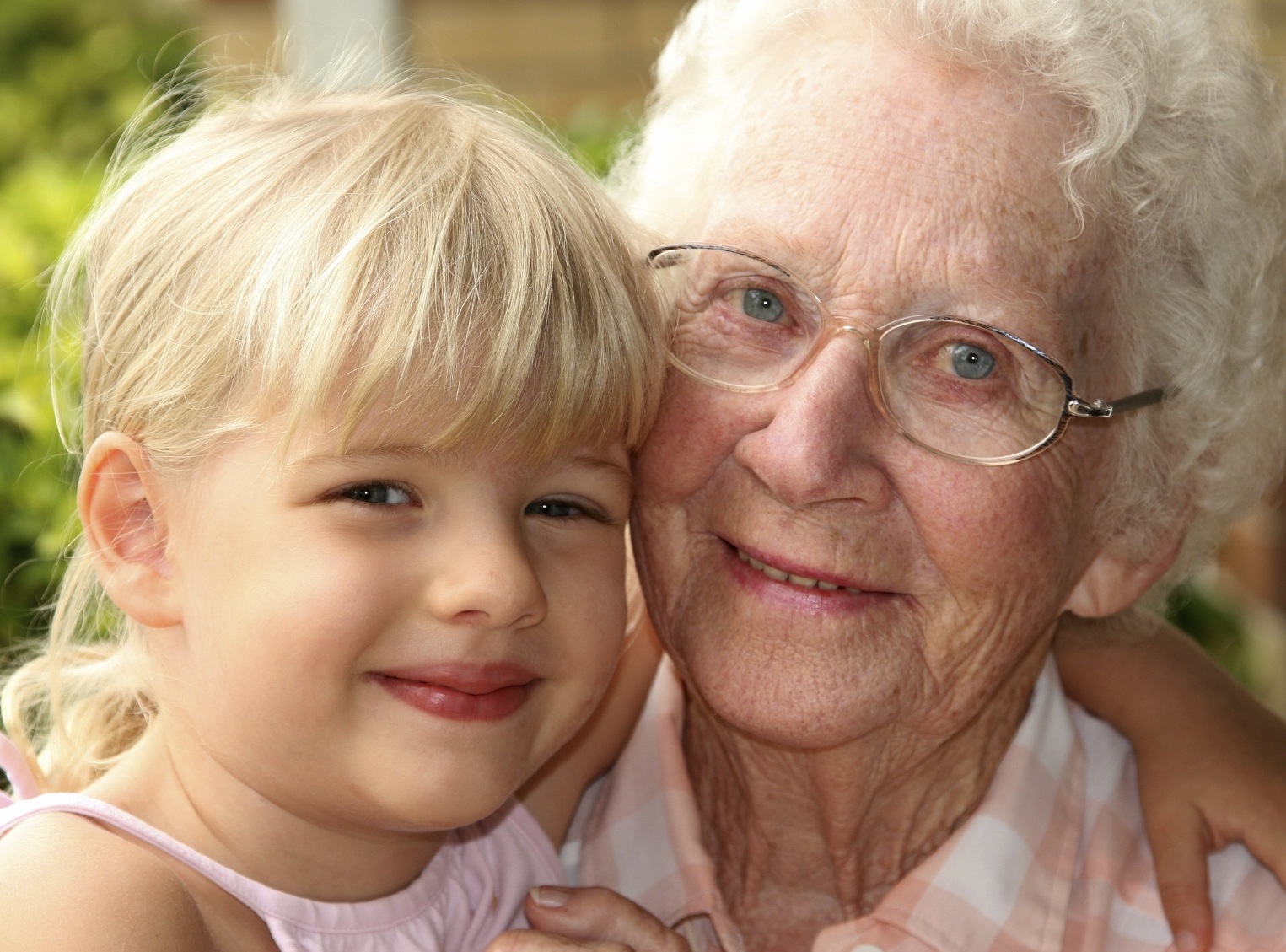 year you adopted regardless of whether you had any qualifying expenses. If you did not adopt from the foster care system, you must have qualifying expenses like legal fees. This tax credit allows adoptive parents to claim up to $13,460 per child.
year you adopted regardless of whether you had any qualifying expenses. If you did not adopt from the foster care system, you must have qualifying expenses like legal fees. This tax credit allows adoptive parents to claim up to $13,460 per child.
Please note that tax credits themselves are not counted as income. They will not be counted when you apply for financial help.
Center for Budget and Policy Priorities (CBPP) – To find out about tax credits in Kansas. www.cbpp.org
The U.S. Internal Revenue Service (IRS) – To find out more information about each of these tax credits www.irs.gov
Back to Top
Education
The U.S. Department of Education offers a parent site that has a wide range of helpful information for parents and caregivers regarding children’s education from early childhood through college, special needs, disabilities, language challenges and gifted students.
1-800-USA-LEARN (1-800-872-5327) (toll-free)
Kansas State Department of Education
785-296-3201
Email: contact@ksde.org www.ksde.org
Back to Top
Educational Enrollment
Relative caregivers can contact their local school district’s administrative office or their local school to find out how to register the child and what paperwork is needed. Caregivers may need birth records, health records or previous school records. Some states have laws that allow relative caregivers without legal guardianship to enroll the children they are raising in school. These laws are often called education “consent” laws, but they may be called something else in Kansas.
Grandfamilies.org Online Database - To find out if Kansas has an education consent law. www.grandfamilies.org/Search-Laws
Back to Top

Early Intervention, Special Education and Related Services
The Federal Individuals with Disabilities Education Act (IDEA) - From birth to age 21, children who have learning disabilities, physical disabilities or other special needs may be able to get early intervention, preschool and special education services in school through the federal IDEA. Services may include speech, physical and occupational therapies.
The IDEA requires that states identify, locate and evaluate all children ages 3 to 21 with disabilities who may need special education and related services. Once the evaluation team, which includes a child’s caregivers, has decided if a child is eligible for early intervention, preschool or special education services, an Individual Family Service Plan (IFSP; birth to three years of age) or an Individual Education Plan (IEP; three to 21 yearsof age) is developed and services should begin shortly.
Kansas State Department of Education, Special Education Services
Colleen Riley, Director of Special Education Services 785-296-7454 or 1-800-203-9462 (toll-free)
Email: criley@ksde.org www.ksde.org
Kansas Infant-Toddler Services
Kansas Department of Health and Environment 785-296-6135 or 1-800-332-6262 (toll-free) www.ksits.org
Parent Centers across the country provide information to help parents and caregivers with children who have special education needs and disabilities.
Online State Directory - To find Parent Centers in Kansas. www.parentcenterhub.org/find-your-center/
Generations United’s Grand Resources:
A Grandparent’s and Other Relative’s Guide to Raising Children with Disabilities www.gu.org/RESOURCES.aspx
Back to Top
Early Childhood Education
Head Start and Early Head Start are early education programs for eligible children.
Online Directory - To find Head Start or Early Head Start centers in your part of the state. 1-866-763-6481 (toll-free)
www.eclkc.ohs.acf.hhs.gov/hslc/HeadStartOffices
Child Care Aware provides information, resources and connection to local Child Care Resource and Referral Agencies (CCR&R) that help you find local child care.
Online Directory - To find your local Child Care Resource & Referral Agency. 1- 800-424-2246 (toll-free)
www.childcareaware.org/families/
Back to Top
Legal
The following legal relationships may be options for both those children exiting the foster care system and those outside the system. For those families who do not want to establish a legal relationship, consent and power of attorney laws are available.
Kansas Legal Services' Kids2Kin provides legal assistance for kinship families in Kansas for families of children at risk for foster care. Referrals of families must be made by the Department for Children and Families.
All of the following options may be accomplished through legal assistance that is offered by Kansas Kids2Kin.
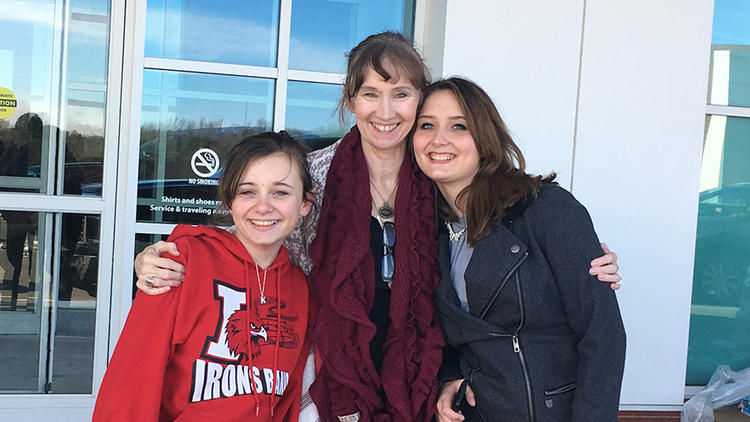 Adoption
Adoption
With adoption, the relative caregiver becomes the parent in the eyes of the law. This fact makes access to services on behalf of the child the same as for any parent. Adoption ends all of the birth parents’ rights and responsibilities, which means that birth parents cannot go to court later and reclaim those rights and responsibilities.
Adoption assistance payments may be available to relative caregivers who choose to adopt children in their care from the child welfare system.
North American Council on Adoptable Children - To get information about your state’s subsidy, in addition to other adoption information.
Dave Thomas Foundation for Adoption - To find adoption resources that may be helpful to you. www.davethomasfoundation.org
In Kansas, resources are available for families after adoption has taken place at
- Foster Adopt Connect
- K-PARC: Serving Kansas – Adopt Kansas Kids (adoptkskids.org)
- 1-855-236-7857
Back to Top
Guardianship
The biggest difference between adoption and guardianship is that guardianship does not take away all the birth parents’ rights and responsibilities. Parents typically keep certain rights and the obligation to financially support the child. Unlike adoption, the parents can go back to court and ask for the guardianship to be ended. For caregivers, a guardianship allows them to access services on behalf of the child that otherwise might prove impossible while not changing family relationships, like making grandma legally mom.
Guardianship assistance payments may be available to relative caregivers who choose to get guardianship of the children in their care who are exiting the child welfare system.
Back to Top
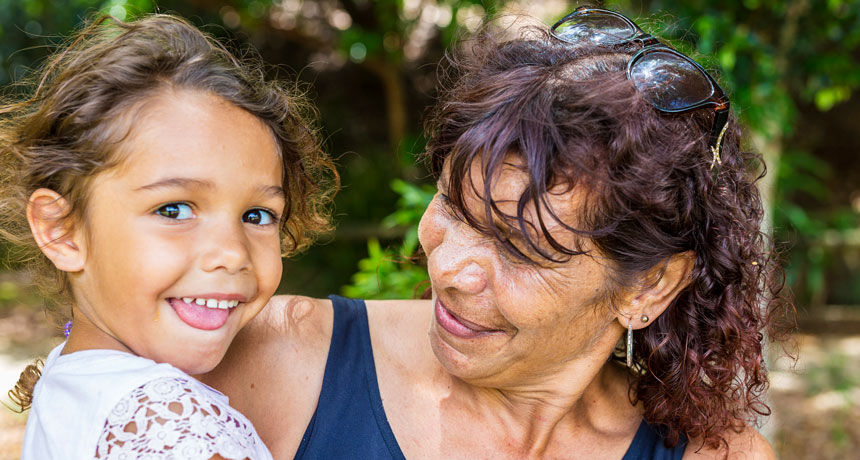 Other Options
Other Options
Relative caregivers who do not want or have a legal relationship to the children in their care have laws that make it possible to access health care treatment and educational services on behalf of the children without going to court.
For more information on all these options, and to see what exists in your state, see www.grandfamilies.org.
Back to Top
State Laws
Grandfamilies.org is a collaboration between Generations United, the American Bar Association Center on Children and the Law and Casey Family Programs. It contains an easy-to-use, searchable database of state laws and legislation directly impacting kinship families. You will also find explanations of legal topic areas, practical implementation ideas, personal stories and many other resources.
Topics Covered:
- Adoption
- Care and Custody
- Education
- Federal Laws
- Foster Care Licensing
- Financial Assistance
- Healthcare
- Housing
- Kinship Navigator Programs
- National Family Caregiver Support Program
- Notification of Relatives
- Subsidized Guardianship
The online database of laws and legislation is at www.grandfamilies.org/Search-Laws.
Back to Top
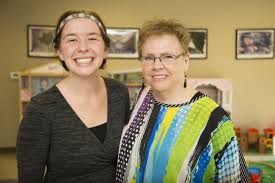
- Annie E. Casey Foundation Kids Count Data Center. 2013-2015 Current Population Survey Annual Social and Economic Supplement (CPS ASEC). Estimates represent a three-year average. Accessed March 4, 2017. Retrieved from https://datacenter.aecf.org/ children-in-kinship-care?loc=1&loct=1#detailed/1/any/false/1491/any/14207,14208
- U.S. Census Bureau, 2015 American Community Survey 5-Year Estimates. Accessed March 4, 2017. Retrieved from https://factfinder.census.gov/faces/tableservices/jsf/pages/productview.xhtml?pid=ACS_15_5YR_S1001&prodType=table
- U.S. Census Bureau, 2015 American Community Survey 5-Year Estimates. Accessed March 4, 2017. Retrieved from https://factfinder.census.gov/faces/tableservices/jsf/pages/productview.xhtml?pid=ACS_15_5YR_S1002&prodType=table
Table of Contents
